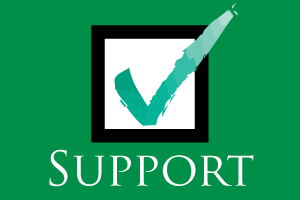Less investment in much-needed infrastructure, increased costs and more litigation are just some of the negative ramifications of the “No Blank Checks Initiative” on the November ballot, according to testimony at a legislative hearing yesterday. (8/9/16 Update: This measure will appear as Proposition 53 on the November 2016 ballot.)
Loren Kaye, president of the California Foundation for Commerce and Education, a think tank affiliated with the California Chamber of Commerce, emphasized those points at a joint informational hearing of the Senate Governance and Finance and the Assembly Appropriations committees.
The CalChamber opposes the measure, which requires a statewide election each and every time the state or a state-local partnership seeks to issue revenue bonds exceeding $2 billion to pay for infrastructure projects.
General obligation bonds appropriately require a vote of the people, because the risk of default is on the taxpayers. But the risk for default of revenue bonds is on the bondholders, which makes a statewide vote unsuitable, the CalChamber argues.
Among testifiers outlining problems with the initiative at the hearing were State Treasurer John Chiang, Transportation Secretary Brian Kelly, Natural Resources Secretary John Laird and representatives from the Department of Finance and University of California.
Kaye added that other opponents of the initiative include Governor Edmund G. Brown Jr., Lieutenant Governor Gavin Newsom, State Controller Betty T. Yee and former State Treasurer Bill Lockyer.
Testimony at the hearing pointed to the same problems the CalChamber Board identified with the “No Blank Checks” initiative when voting to oppose it:
The initiative would harm major infrastructure projects by adding an unnecessary level of cost, bureaucracy and delay to a process already bogged down with delays and bureaucracy. If passed, the measure will take a widely used and fiscally responsible financing mechanism off the table.
In addition, the measure would encourage litigation and increase the ability of special interests to leverage major infrastructure projects for their own purposes.
Although the measure has been linked to water infrastructure, it also would have an impact on transportation, local school construction, UC and California State University projects, and impede the ability for emergency repairs to be made in the wake of a natural disaster.
Senator Bob Hertzberg (D-Van Nuys), chair of Senate Governance and Finance, commented that the “tremendous uncertainty” created by the initiative and its vagueness on key points is going to have “a chilling effect” on efforts to finance projects.
Initiative proponents have “taken an entire sector of finance that has worked elegantly as an important tool and…basically thrown it into disarray,” Hertzberg said.
Key problems with the initiative, which is opposed by a broad, bipartisan coalition of business, labor, local governments and water agencies, include:
- Deceptive abuse of the system. The initiative was placed on the ballot to try to disrupt a specific project—the plan to repair California’s statewide water distribution system through the Delta. Irrespective of one’s position on that single project, the measure has far broader implications—it would delay or even stop much-needed repairs to roads, bridges, water supply and delivery systems, hospitals and universities all over the state.
- Erodes local control. The measure takes away local control by requiring statewide voter approval even for some local infrastructure projects. Under this measure, cities and towns that want to come together with the state and form a Joint Powers Authority to issue revenue bonds to upgrade local water systems, roads, bridges, ports and universities would have to put their project on a statewide ballot. That means voters in faraway regions would have the authority to deny funding for local projects outside of their community.
- Disrupts vital infrastructure development. California and its local communities already suffer from a massive backlog of essential infrastructure needs, including outdated water systems that cannot withstand earthquakes, crumbling roads and bridges, and overcrowded hospitals and universities. This measure would worsen infrastructure problems by denying the use of revenue bonds to finance these much-needed projects.
- Contains NO exemptions for emergencies or a major disaster. Following an earthquake or flood, local governments may need to wait as long as two years in order to get voter approval to begin rebuilding damaged or destroyed roads, freeways, bridges, hospitals and water delivery systems.
- Unnecessary. Private investors bear the financial risk for revenue bonds, not the state or its general fund. Revenue bonds are repaid by project users who directly benefit, not taxpayers. For instance, repairs to a bridge would be paid by tolls on the bridge, or customers (not taxpayers), in a specific water district would pay to build a water recycling plant. It makes no sense to have a statewide election on projects not financed by taxpayers for which the state and local governments bear none of the financial risk.
In closing, Kaye reiterated that the definition of the word “project,” which is central to the initiative, is unclear.
“In fact, as it is clumsily written, nobody really knows what a project is,” Kaye said. “But both the intended and unintended but clearly foreseeable consequences of this measure will harm our ability to accommodate growth and economic development for decades to come.”
Contact: Loren Kaye


